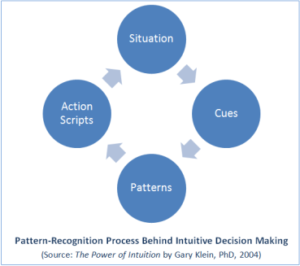Introduction to the Intuitive Empath
Almost 3,000 people per month search on Google to learn about the intuitive empath. I conducted that search and read the articles that ranked on the first page. This is a great example of how the Google search algorithm is astoundingly unintelligent. The articles I found in this search range from wrong to ignorant to worthless.
The Empath.Help Manifesto declares that we only teach based on science, I decided that an accurate, scientifically based article on the intuitive empath would be useful. Don’t worry…no technical jargon ahead.
Becoming an intuitive empath is worth it. These are powerful people.
Case Study: Aleya Dao, Master Sound Healer
Aleya Dao is the perfect example of an intuitive empath. Full disclosure: She’s my wife. Aleya is an empath. She can experience the emotions of others, even when they are not her physical presence. For years, her empathy was uncontrolled and untrained, causing her the same challenges faced by all untrained empaths and emotional sensitives.
Slowly, she developed tools to understand where and why unexplainable feelings came into her. She discovered that she could literally hunt down the source of her unwanted feelings. When I asked her how she did this, she told me that she puts the question to her Higher Self and waits for the answer. The answer always comes back as a feeling of right or wrong.
This is the essence of the intuitive empath. She can gain answers and make decisions based solely on feelings, not on logic or reasoning.
How Is An Intuitive Empath Different From Other Empaths?
Non-intuitive empaths experience the emotions of others. If the non-intuitive empath has not been trained, feeling other people’s emotions is very challenging. Non-intuitive empaths do not always know where their feelings are coming from and almost never know the cause of those feelings.
An intuitive empath feels the emotions of others, just like a non-intuitive empath. In addition, she know the cause of the emotions of others. Because the intuitive empath feels the emotions of others and see deep patterns, she often make better sense of the world around her.
What Does Intuitive Mean?
In our culture, the legacy of intuition is less than inspiring. Intuition is seen as mysterious and unexplainable at best and as something inaccurate, hokey, or epiphenomenal at worst. Of course, the rationalists that dismiss intuition are wrong. Intuition is a powerful tool based in our brains.
Neuroscientists have discovered that neural networks in the basal ganglia create the experience of intuition. Combined with implicit learning and social learning and cognition, our brains create an unconscious process for fast, effortless evaluations and decisions.

You just met a new guy, and he is interesting to you. What process do you use in deciding whether to date him or not.
You could build a decision tree to list all of the important factors in your decision, rate the factors, assign probabilities to each outcome, and tally the score. You could focus on each factor relevant to your dating decision and begin a new level of decision tree for each.
For example, if one of the factors relevant to your decision is “Could I live with this guy on a day to day basis?”, you could generate a sub-list of relevant factors. This type of decision-making is a deliberative or analytic strategy. It is a form of rational thinking. Aren’t you glad you don’t do that when making your dating decisions.
More likely, you will deploy an intuitive strategy. You ask yourself the question, “Should I date this guy?” and wait for a feeling to emerge. A warm and fuzzy feeling is a yes; an anxious or neutral feeling is a no. Your intuitive decision-making is fast, effortless, and usually pretty accurate. Intuition clearly exists in all of us.
Most researchers acknowledge that (1) intuitive events originate beyond consciousness, (2) information is holistically processed, and (3) emotions often accompany intuitive perceptions. I can provide you the research citations if you ask for them in the Comment section below.
Intuition is primarily a decision-making and appraisal process. We use intuition when problems are poorly structured or time is short. The dating decision is a great example of a poorly structured problem. There are so many factors involved in deciding to go out with a guy, the decision simply cannot be made on a “rational” basis.
Intuition is a form of direct knowing, which is different from guessing. With intuition, you just know what is right or wrong. You don’t know how you know it, but it is solid.
Sometimes, you have to make a guess at something. If it is an educated guess, your brain will employ a series of rules called heuristics. You build up your heuristic database with life experience. Think about your experience with intuition vs. heuristics. In the intuitive experience, you have certainty even though you might not be able to explain the reason for your certainty.
In the heuristic experience, you do not have certainty, but you might be able to explain the process by which you came to your decision or conclusion. Intuition and informed guessing are both important, and they are quite different.
Attributes of Intuition
Unconscious Process
Intuition is an unconscious process. We are not aware that our brain is processing information or making decisions. We have not conscious control over our intuitive processes.
Effortless
Intuition is effortless. One of the reasons we like to rely on intuition is because we don’t have to engage in the laborious, painful, and slow process of critical thinking. Instead, the intuitive process occurs outside of awareness.
Direct Knowing
Intuition is knowing without knowing. That’s why it is called a “gut feeling.” We don’t know why we know what we know, but we are certain of its truth. Intuition is direct knowing without any use of conscious reasoning.
Fast Pattern Recognition
Intuition involves fast pattern recognition. Our brains pay close attention to the surroundings, piecing together parts of a narrative outside of our conscious attention. Once the narrative is finished, the story pops into consciousness, and we have our answer.
What Is An Intuitive Empath?
An intuitive empath is a person who feels the emotions of others and knows the cause or source of the emotions without using any conscious process. Often, an intuitive empath will describe situations with imagery and metaphor instead of words because metaphors carry much more meaning.
You will read lists of characteristics attributed to intuitive empaths in various blog articles ranked on the first page of Google. Here are some of the attributes. Let’s make this a true-false test based on what you have learned.
Which of the following statements describes a true intuitive empath:
- They surround themselves with positive things.
- They typically have meaningful careers.
- They bring other people together.
- They don’t rush into making decisions.
- They can experience the emotions of their loved ones, even if they are not with that person.
- They like to stay focused.
- They have a knack for listening to other people’s stories.
- They are quick to spot someone who is being deceitful.
- They pick up on nonverbal cues.
- They are able to see the big picture.
- They have great imaginations.
- They are creative and artistic.
- They can see everyone’s point of view.
- They are natural healers.
- They have a huge enthusiasm for life.
- They are comfortable being alone.
- They are able to contribute to other people’s lives, like no one else can.
Answers: 1F, 2F, 3F, 4F, 5T, 6F, 7T, 8T, 9T, 10F, 11F, 12F, 13F, 14F, 15F, 16T, 17F.
If you want an explanation for any answer, leave a question in the Comments below for me so I can provide it.
What Are Advantages Of Being An Intuitive Empath?
The greatest advantage to being an intuitive empath is that you can discern the origin and cause of the emotions of others. This skill allows the intuitive empath to turn the chaos experienced by the untrained non-intuitive empath into order and understanding. An intuitive empath can be a healer. My wife Aleya has trained many intuitive empaths in her Seven Cups of Consciousness protocols.
What Are The Challenges Of Being An Intuitive Empath?
Recognize that intuition in any form has limitations. In general, intution can be trusted only when operating under regular, predictable, and stable conditions. In the absence of stable conditions, intuition is unreliable.
In my graduate class on decision-making, I tell my students to use these guidelines:
- If you face a novel problem or situation, do not rely on intuition alone.
- If the consequence of your decision could be catastrophic to you, do not rely on intuition alone.
- If the situation seems familiar, intuition will probably work.
- If the risk of being wrong is low, intuition will probably work.
How Do You Develop Intuitive Empathy?
I am not aware of any course that teaches a non-intuitive empath how to be an intuitive empath. If you are interested, tell me in the comment box. If there is enough interest, Aleya and I will put a course together. In the meantime, here are some practices that will develop you as an intuitive empath:
When you feel the emotions of others, ask yourself,
- Where are these coming from?
- Who do these emotions belong to?
- Are these my emotions, or do they belong to someone else?
- Am I feeling emotions from my ancestors?
- Am I feeling emotions from my parents or grandparents?
Do not think about the answer. Wait to see if an answer appears without effort into your consciousness. The timing is never certain. You could receive an answer quickly or a few days. If you do not gain clarity, ask the question again and let it percolate in your unconscious.
Intuition develops with experience and practice. You can become an intuitive empath with this practice.
An intuitive empath is a person who feels the emotions of others and knows the cause or source of the emotions without using any conscious process.
Like to Join Our Tribe?
Let's have a joyous conversation that starts today.
- We don't spam.
- We don't sell your email.
- If you don't open our emails over a period of time, we'll gracefully unsubscribe you.
